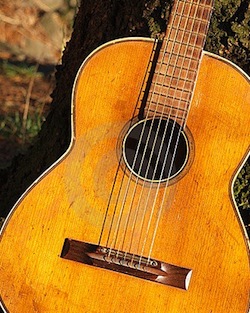
 Today U.S. Representative Jim Cooper announced legislation to clarify a broad federal law so that musicians, instrument retailers and resellers—among many others—would no longer be subject to penalties for unknowingly possessing illegal woods. “In theory, anybody who travels outside the country or even across the state line with an old guitar right now would be in legal jeopardy,” he explained.
Today U.S. Representative Jim Cooper announced legislation to clarify a broad federal law so that musicians, instrument retailers and resellers—among many others—would no longer be subject to penalties for unknowingly possessing illegal woods. “In theory, anybody who travels outside the country or even across the state line with an old guitar right now would be in legal jeopardy,” he explained.
The RELIEF Act (Retailers and Entertainers Lacey Implementation and Enforcement Fairness) clarifies the Lacey Act, which Congress updated in 2008 in an effort to disrupt illegal logging.
U.S. Representatives Mary Bono Mack (CA) and Marsha Blackburn (TN) joined Cooper as original co-sponsors.
“I’m grateful to Rep. Cooper for all of his support,” said Vince Gill. “From the perspective of guitar players, collectors and lovers of old instruments, I wholeheartedly support this bill.”
The Lacey Act has been a hot topic this year following alleged violations by Gibson.
The RELIEF Act includes:
• Grandfathering: Any foreign wood products that a person owned before May 22, 2008 (the date the Lacey Act amendments were signed into law) will be exempt from the law.
• Protection: If a person has any wood that violates Lacey but didn’t know it, he or she will not be penalized, and the government cannot confiscate that individual property.
• Access: The government should compile a database of forbidden wood sources on the Internet so that everyone is fairly warned.
The RELIEF Act preserves punishments for those who knowingly violate the Lacey Act. It also keeps in place existing laws that seek to disrupt illegal logging practices. The RELIEF Act does not affect ongoing cases under the Lacey Act.

Category: Featured, Financial/Legal
About the Author
Sarah Skates has worked in the music business for more than a decade and is a longtime contributor to MusicRow.View Author Profile


